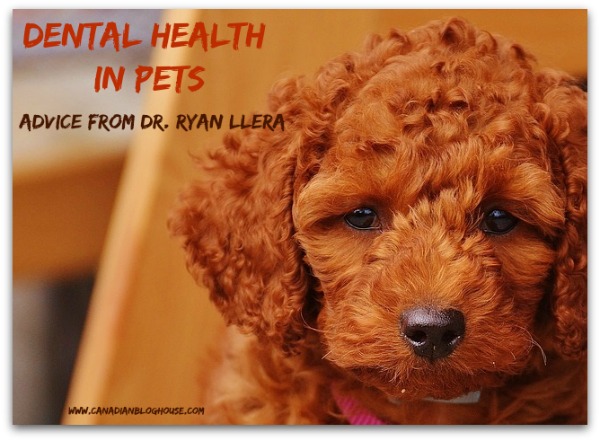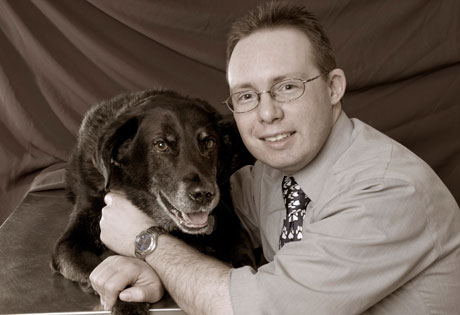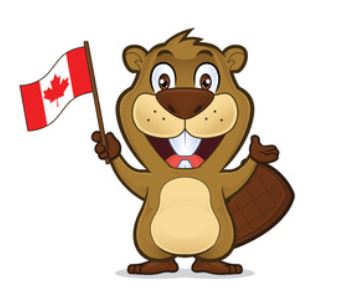When it comes to dental health, pet owners sometimes forget how important good dental health is for their four-legged friends. Keeping your pet’s teeth healthy, by brushing their teeth, and taking them to the vet every few years for a proper teeth cleaning, is something that should be part of the overall health care plan for your pet.

Bella, who is 4 1/2 years old, is now in need of a proper teeth cleaning. Occasional teeth brushing, and special dental treats, have not stopped the progression of tartar build up on Bella’s teeth. It’s time to get her teeth properly cleaned. Thanks to this advice from Dr. Ryan Llera, I have booked Bella in for an appointment to have this procedure done.
Here’s Dr. Llera with some great advice!
Dental Health In Pets
Before You Kiss Your Pet…
Admit it…you love your pet! So what’s a little kiss from Rover or Fluffy?? Not saying that other pets don’t kiss but when was the last time you were kissed by your pet rabbit? Yes, cats and dogs show their affection in many ways – curling up in your lap, bringing you the newspaper, encouraging you to go for that walk or play fetch, and of course, kisses!! Some kisses are slobbery, some are rough. But all of them are a sign of affection and all of them are dirty. Yes, you read that correctly…dirty.
Your pet may drool, eat off the floor when you’ve dropped something, find random things in the yard, and they clean themselves. Think about it, cats walk through their litter box then groom themselves. And don’t forget they lick their butts. Let’s be honest…when was the last time you really looked in your pet’s mouth?
Dental health is one of the largest problems when we’re talking about animal health. It’s also one of the most overlooked. Most often, I’m finding problems with the mouth on middle-aged to senior pets who no longer want to eat, have lost weight, or have stinky breath. The truth is, many of these mouths I can’t save. Dental health starts when your pet is a young puppy or kitten. You can do a lot to prevent things from worsening and ultimately, save your pet’s teeth & health (as well as helping reduce your vet bills).
At a young age, your pet will have deciduous, or baby, teeth that they will eventually lose. This is the perfect time to start brushing their teeth!! Puppies and kittens are the most pliable when it comes to behavior and this can help them get used to the idea. You need to use a pet toothpaste; yours won’t suffice. Start with letting them lick the toothpaste for a few days then start introducing the toothbrush by letting them lick the paste off the brush while you touch their teeth and lips. Any regular soft bristled toothbrush will do and I don’t recommend the finger brushes. After a few more days, you can take the final step and begin brushing the teeth using a circular motion. In a perfect world, you would do this everyday but realistically, I recommend at least 3 times per week.
Other than brushing, a few simpler tools exist in the form of special dental diets or treats that can help to clean the teeth through their normal chewing habits. These dental diets are specially made to be a larger and harder kibble that doesn’t crumble as easily as regular foods. There are a few over the counter brands and a few specific ones available from your veterinarian (Hill’s T/D, Purina DH, Royal Canin Dental). Treats and diets that have the Veterinary Oral Health Council seal of approval have undergone extra testing for your pet’s benefit.
How often do you visit your own dentist for a cleaning? Just like you, your pets can get a cleaning and tooth polishing. I would recommend this every 1-3 years (depending on breed and age of your pet). Why? This way of maintaining can allow your veterinarian to be proactive about problems instead of removing half of your pets teeth, and thus keeping them under anesthesia longer, if you take care of the mouth before problems develop.
A last comment on treats… There’s so many out there but not all of them are good. Bones & antlers can actually damage the teeth or soft tissues of the mouth. Objects that are too hard can can cause scratches and small chips in the enamel. A good rule to keep in mind is the “kneecap rule”; if it’s too hard to hit on your kneecap, it’s too hard for your pet to chew on.
So, what are you going to do before you kiss your pet? Hopefully it will be taking a more active approach in their dental health! Save your pet’s teeth and save yourself some money by doing good preventative care early on. Your pet will be happier and healthier because of it and those kisses will be well deserved!
 Dr. Ryan Llera is a small animal veterinarian at the Kingston Veterinary Clinic in Kingston, Ontario. Though originally from Florida, he married a Canadian (who is also a vet!) and they share their home with 3 cats, 2 dogs, 2 horses, and a rabbit. Ryan is also a regular guest writer for the Ontario SPCA blog. You can find more of his writing at www.drryanllera.com or see what else he is up to on Facebook, Instagram, and Pinterest.
Dr. Ryan Llera is a small animal veterinarian at the Kingston Veterinary Clinic in Kingston, Ontario. Though originally from Florida, he married a Canadian (who is also a vet!) and they share their home with 3 cats, 2 dogs, 2 horses, and a rabbit. Ryan is also a regular guest writer for the Ontario SPCA blog. You can find more of his writing at www.drryanllera.com or see what else he is up to on Facebook, Instagram, and Pinterest.
